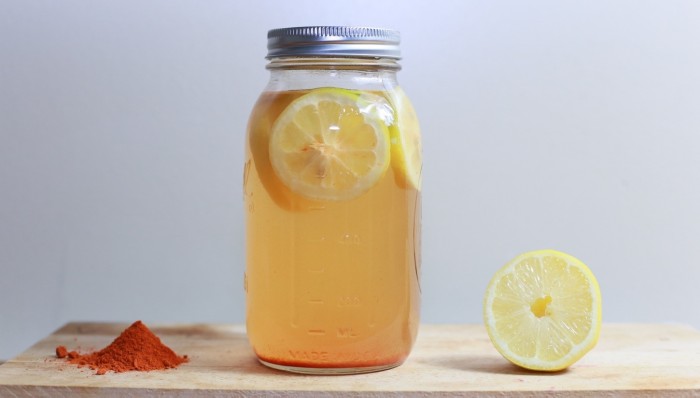 I have to admit–I live a pretty busy lifestyle. I know that relaxation is very important for our well-being but sadly, most of my days are so packed that I leave it for the weekend.
I have to admit–I live a pretty busy lifestyle. I know that relaxation is very important for our well-being but sadly, most of my days are so packed that I leave it for the weekend.
This is why I have promised myself that I would take a proper break at least twice a year–when I exclusively take care of my body and mind and spend time in nature. I read multiple articles about fasting and how it improves our health. I find it so fascinating that I decided to give it a go.
Fasting was present in human life for ages. It has been practiced in all major religions. Christians, Muslims, Jews, Hindu, Taoists and many more abstained from eating and drinking as an act of self-control and penitence. In recent years, fasting has been recognized as beneficial to overall health and longevity by various leading doctors and scientists.
According to Dr. Valter Longo, reducing calorie intake can enhance cognitive performance, reverse diabetes, protect from cancer and extend the lifespan. Mark Mattson from the Laboratory of Neurosciences at the National Institute of Aging claims that it can help prevent and fight neurodegenerative conditions such as Alzheimer’s and Parkinson’s (watch his inspirational TED talk here). Even Benjamin Franklin once said that “The best of all medicines is resting and fasting”!
I had to try it for myself!
There is a lot of different forms of fasting but I decided to go on a “vegetables & fruit” diet promoted by polish doctor – Ewa Dabrowska. I flew to Kashubian district in Poland to one of the retreats authorized by Dr. Dabrowska. This is a beautiful area with clean air, lakes, and forests. The weather was very kind to me–it was warm and sunny all week. I was walking a lot and didn’t really have time to think about food 😉
The diet was based on mostly low-starch vegetables and low-GI fruit. It was complemented by green vegetable juices and probiotic foods such as sauerkraut, fermented beetroot juice, and gherkins.
Coffee and black tea were not allowed, but we could drink water and different herbal and fruit teas.
Meals were served at regular times: 9 a.m., 1:30 p.m. and 6 p.m.
In comparison to normal nutrition, this plan is very low in calories (approximately 800 kcal per day). Dr. Dabrowska explained that during such a restrictive diet, “the entire metabolism switches to burning, cleansing and regeneration and the whole process has powerful self-cleaning potential.”
Even though 800 kcal a day seemed a bit scary (“I will be starving!!”), I didn’t feel hungry. After just 3 days my complexion got better, my bowel movement improved and my energy levels lifted.
The whole experience was very positive. Nevertheless I wish I had known a few facts beforehand so I could have better prepared my body for the fasting.
Ready to try your own fasting plan? Here is my advice to you.
How to Plan For Your Fasting
1. Stop coffee at least 5 days before fasting
I love coffee and I enjoy it when I go out with my husband and friends. Although I am not a massive coffee addict I still experienced unpleasant “side effects” of detoxifying from caffeine. I had strong headache during the first 42 hours, was a bit anxious, irritated, and light-headed.
Research confirms that caffeine withdrawal symptoms last for two to nine days with the peak of intensity of unpleasant effects within first 24 – 50 hours.
I don’t recommend going cold turkey! If you drink 3-4 cups of coffee a day your body will not thank you for sudden cut off! Ideally, reduce your intake by 1/4 every 2 days until finally you stop it completely 5 days before planned fasting. You might also consider trying decaf at your “transition period” but be aware that it would still contain some amount of caffeine (as it is really difficult to completely flush it out during the decaffeination process).
2. Increase water intake
This advice never gets out of fashion! An average human body consists of over 55% of water. Water is needed for all necessary reactions that take place in our cells. It is also very important for healthy digestion and elimination. And it is vital for detoxification as it helps the removal of toxins.
I recommend starting your day with glass of water with lemon juice. You can also add a pinch of Himalayan salt for necessary electrolytes (such as sodium or potassium).
Fasting on (mostly) raw fruit and veg might slightly reduce your body temperature and you may feel colder than normal. Try adding some ginger juice or pinch of turmeric or cayenne pepper to your drinks and you will soon feel warmer.
3. Reduce sugar intake
This also include natural sugars (dry fruits, maple syrup, Stevia, very sweet fruit such as banana, mango, pears, grapes, and pineapples). Replace them with grapefruits, berries, tart cherries, red and blackcurrants, kiwi and apples.
Preparing your body for low-GI diet will help you to avoid some of the side effects of sugar withdrawal (shakes, low energy, headache, muscle pain, and nervousness).
4. Try eating dinner earlier
This way you would do what’s called an overnight fast – when you stop eating for 12-16 hours form your last meal to the breakfast. You will slowly prepare your metabolism for not eating for longer period of time.
For dinner, have a protein source with cooked vegetables. Proteins will provide satiety and cooked veggies are easier to digest than raw ones.
5. Prepare for coming back home
This was my final mistake. I returned home to an empty fridge. All I had was a bag of nuts, oatmeal crackers and an old pumpkin. This was definitely not what I dreamed of eating ;D.
To my surprise I wasn’t particularly craving anything else other than a warm and comforting vegetable stew–my body got used to a wholesome, organic, and nutritious diet.
It was too late to go shopping. I decided to roast my pumpkin with some nuts, cinnamon, and nutmeg. I also found some porridge oats and cooked them with a bit of tahini and water. Overall it wasn’t a Michelin Star dish but it was nice and comforting.
Avoid my mistake:
– do some batch cooking and freeze it in small portions
– order your shopping online to be delivered at the day of your arrival
– stock up with dry food such as millet, buckwheat, pulses and oats
– ask your neighbor to help you and buy the necessary things for you
Be mindful of returning to your normal diet. During fasting your body reduces secretion of some hormones (in my case, protease as my fasting diet was very low in proteins). Digestion requires few days of slow and gradual introduction of other foods you used to eat to work properly.
Good luck with your fasting!
Also by Kate: Asthma, Insomnia, Pollution? How Buteyko Breathing Will Give You Relief
This Ayurvedic Herb Is As Potent As Antibiotics In Treating Acne–And Other Woes
Get more like this—Sign up for our daily inspirational newsletter for exclusive content!
__





